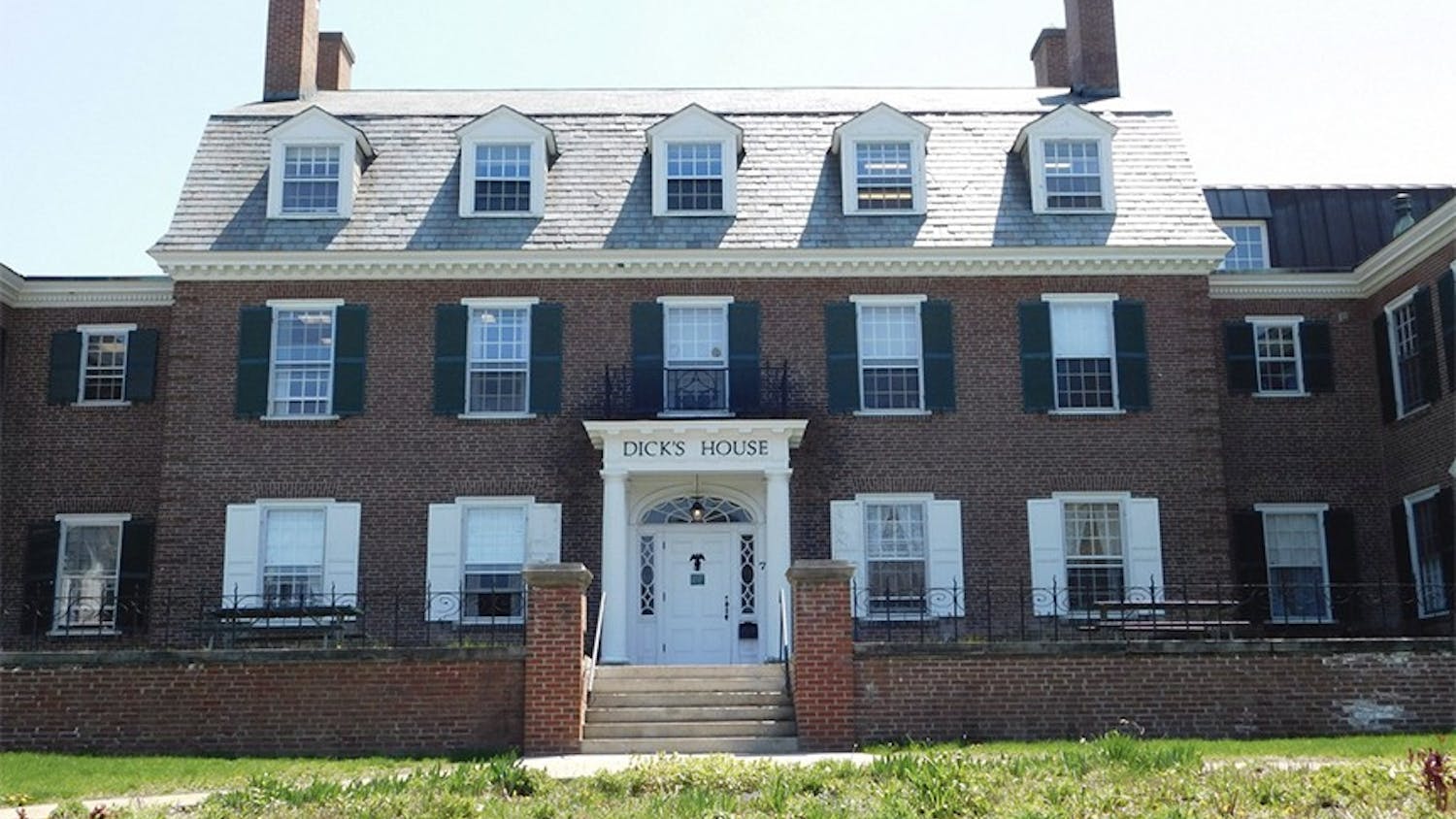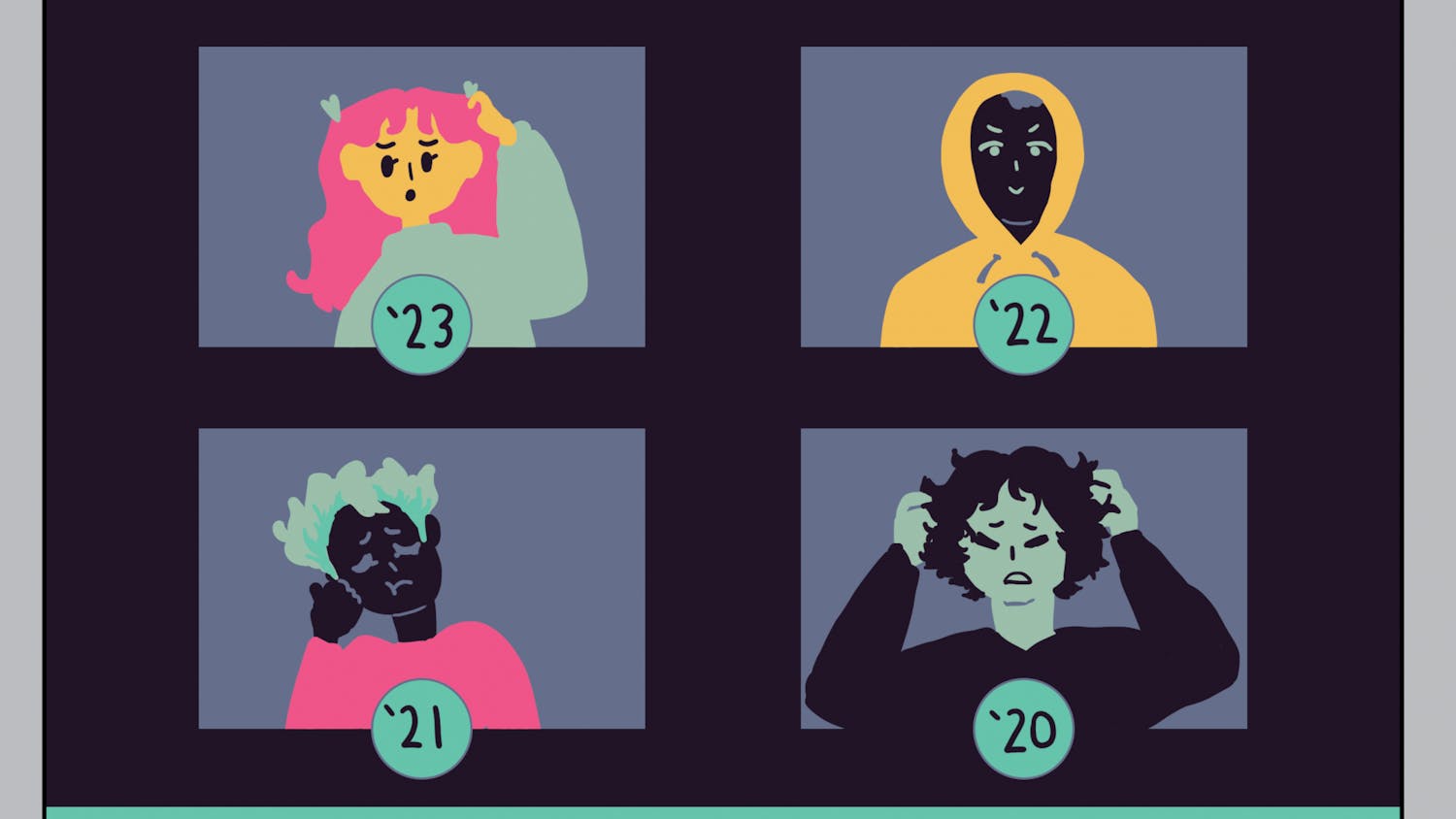To facilitate social connection during the COVID-19 pandemic, Dartmouth students and faculty members have launched a letter-writing program called Pine Pals, connecting students and elderly people in New Hampshire and Vermont.
Amanda Chen ’21, one of the founders of the program, said that there are currently 25 pairs of Pine Pals. She described a “loneliness epidemic” in the U.S. even before the pandemic, which she said has had “huge impacts on mental and physical health.” Chen added that when she saw news about patient visitation restrictions for health care facilities, she realized that social distancing guidelines were only exacerbating the effects of loneliness.
“I was like, ‘Is there a way that we can connect to more vulnerable populations who would want some social connection while everyone is in shelter-in-place?’” Chen said.
Chen, who is also president of the Dartmouth Mental Health Student Union, approached biology professor Lee Witters, an advisor for the MHSU, with her idea over spring break. Witters connected Chen with psychological and brain sciences professor Robert Santulli, who advises Dartmouth Generations — a student group that works with Upper Valley elders — and the Dementia Scholars. He also taught the course PSYC 54.06, “Aging and Life Stories” during the winter term. Santulli said that he has “been involved for years with a variety of initiatives with older people in the community.”
After the three of them came up with the idea for a pen pal system, Santulli said he reached out to organizations that he has worked with in the past, including the Aging Resource Center at Dartmouth-Hitchcock Medical Center. Elderly people who are interested in a pen pal provide their mailing addresses to Pine Pals and are randomly matched with students in the program, most of whom are also involved in the MHSU or one of the groups Santulli advises.
“I think the benefit for students will be to feel like they made a difference in someone's life and put a smile on someone's face when they get that letter,” Santulli said. “Is it changing their world? No, but it's brightening it just a little bit for the people who are very isolated and lonely in many cases.”
Chen said that the group decided on handwritten letter correspondence rather than email communication because it’s “so much more personal.”
“I think it's a nice touch that it's not just an email you're receiving, but an actual letter that someone wrote, stamped and put it in their mailbox,” Chen said.
Santulli added that many elderly people do not have email accounts, so a handwritten letter is more accessible.
To address concerns of COVID-19 transmission through the mail, the program encourages recipients to avoid touching their letter for a day before opening it. The program also suggests using tape rather than licking the envelope to seal the letter.
“It probably isn't even totally necessary to do that; there's no reported transmission of coronavirus through the mail — none whatsoever,” Santulli said. “It's probably over-caution because I think even if you had coronavirus in your saliva and put it on the envelope, it would die before it reached the person, but we're just bending over backwards to be cautious.”
This information is provided in the program orientation and training — a 30-minute Zoom presentation given to students who become Pine Pals. Other guidelines for students include mailing a return letter within five days of receiving one and sending a pre-addressed, stamped envelope with the letter to encourage a response.
Santulli said that the program has also matched students with elderly people with ties to Dartmouth who no longer live in the Upper Valley. The primary focus, however, remains on the local community, and Santulli said “there’s no shortage of older people in the Upper Valley.”
“Dartmouth students miss the Upper Valley community,” Chen said. “That's probably another way it just brings a little bit of joy to students, to know that we're connecting with this community that we can't physically be at right now.”
After spending her first two terms at Dartmouth working with the Dementia Scholars, Audrey Herrald ’23 said that joining Pine Pals has allowed her to continue meeting Upper Valley residents to better understand the Dartmouth community.
“I get to continue learning about what life is like for Upper Valley residents, and I do feel more connected to Dartmouth and Hanover in general because of it,” she said. “Having a program like this to mandate the connection is a great way to remember that we are a part of a larger whole, and I definitely found myself lacking that a little bit.”
Marie Esselborn, an 85-year-old Hanover resident participating in the program, said that she never turns down an opportunity to connect with students, as she said it serves as a way to learn and grow. Esselborn said that she has been “a teacher all of [her] life,” and connecting with students “gives [her] purpose.”
“Anything that puts the two generations together has to do some good on both sides,” Esselborn said. “It's a vehicle for young people to learn about us and our lives and how different things are, and it's a chance for us to learn things that only young people could teach us.”
Herrald said that in addition to gaining a sense of connection, writing letters to her pen pal also improves her communication skills, since she has to express her thoughts “in a way someone who has a different set of life experiences can understand.” In her first letter that she sent a couple of days ago, she said that she discussed appreciating the details of life amid current changes.
“Our friends and connections might slightly shift as we're having difficulty interacting with others, but the little things definitely don't go away,” Herrald said. “So, ‘What was an unexpectedly good thing about today? What last made you smile?’ Little things, but for me, those are what keep me going, so I wanted to see if I can help out by putting them in the letter.”




